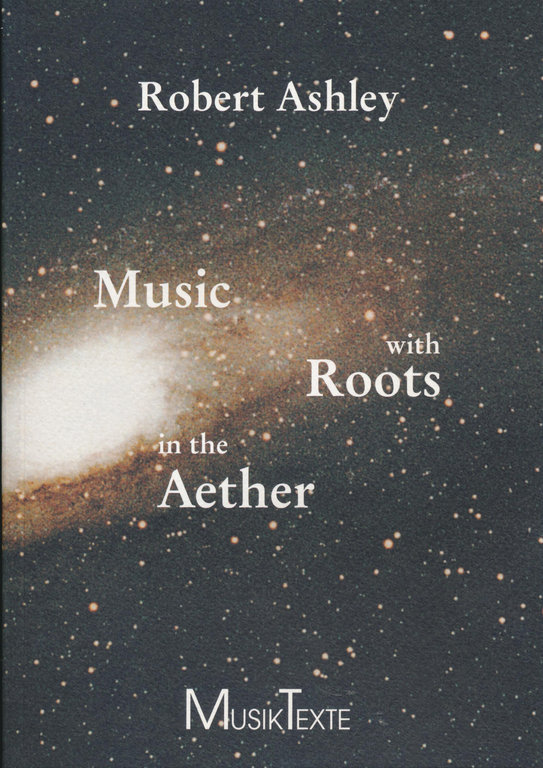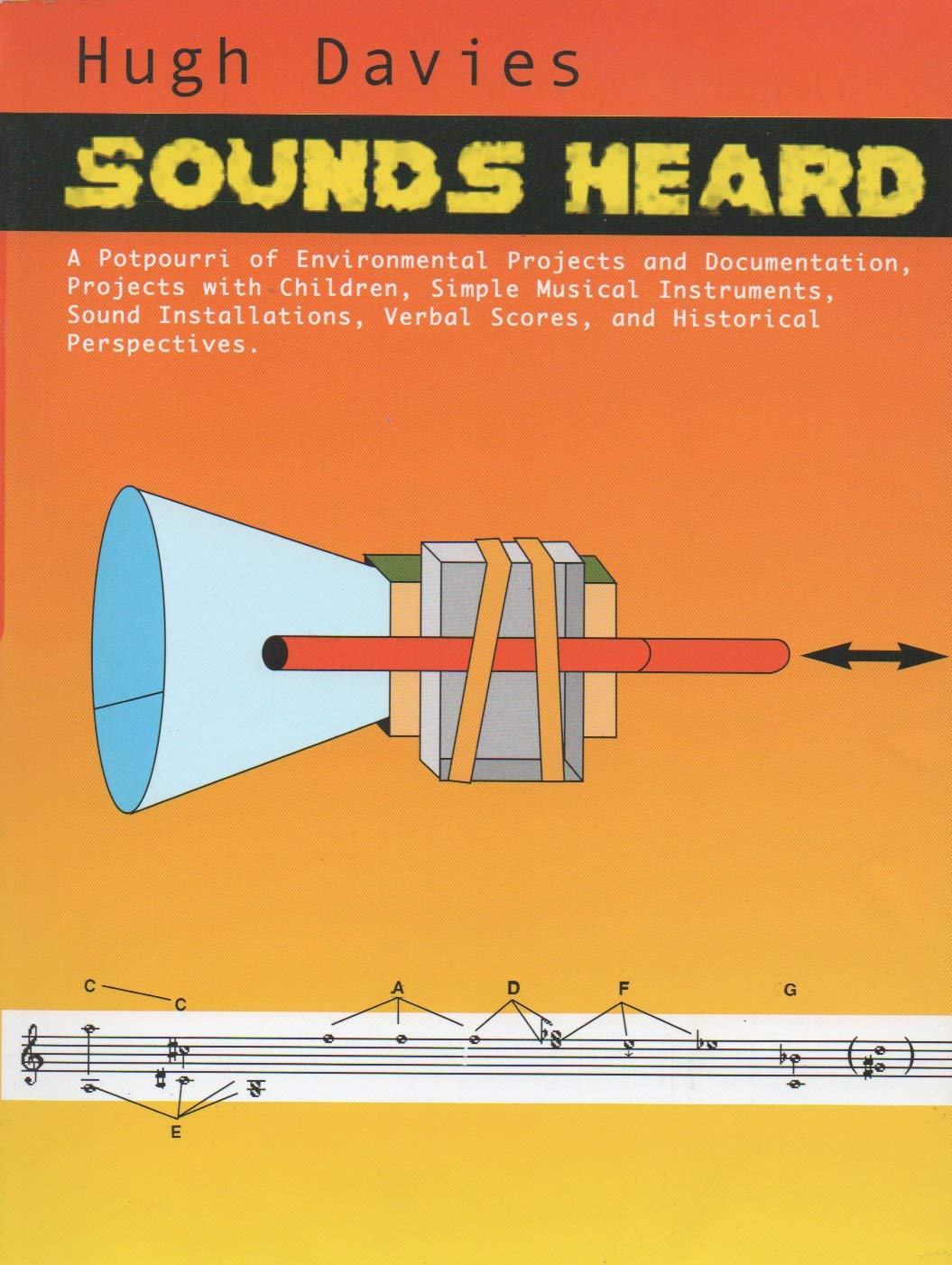Robert Ashley: Music with Roots in the Aether (1975/2000)
Filed under book, sound recording, video | Tags: · avant-garde, composing, composition, interview, music

“Music with Roots in the Aether is a series of interviews with seven composers who seemed to me when I conceived the opera-for-television piece–and who still seem to me twenty-five years later–to be among the most important, influential and active members of the so-called avant-garde movement in American music, a movement that had its origins in the work of and in the stories about composers who started hearing things in a new way at least fifty years ago.” (from the Foreword)
With interviews with and essays about David Behrman, Philip Glass, Alvin Lucier, Gordon Mumma, Pauline Oliveros, Roger Reynolds, Terry Riley and Robert Ashley.
Publisher MusikTexte, Cologne, 2000
ISBN 3980315169, 9783980315166
244 pages
Opera reviews: Norbert Osterreich (Perspectives of New Music, 1977), Arthur J. Sabatini (MFJ, 2004).
Publisher
Distributor (Lovely Music), Video programme
WorldCat
PDF (76 MB, updated on 2025-10-19)
Videos, MP3s (1975-1976, on Ubuweb)
Program brochure (1979)
Hugh Davies: Sounds Heard: A Potpourri of Environmental Projects and Documentation, Projects with Children, Simple Musical Instruments, Sound Installations, Verbal Scores, and Historical Perspectives (2002)
Filed under sound recording | Tags: · composition, electronic music, environment, experimental music, improvised music, music, music criticism, musical instruments, sound, sound art

“Sounds Heard is not only a collection of writings intended for people who are interested or involved in contemporary music, especially those performers – including children – who lack a formal musical training. It also charts a wide cross-section of the activities of an intriguing musical personality. At different times in Hugh Davies’ nearly 40 year career he has been variously described as “the world’s leading electromusicologist”, “the most informed person around on the general subject of new instruments”, “unique English composer”, “one of the most interesting instrument inventors of recent decades”, “the remarkable live-electronics ‘freak”‘, an “electronic wizard”, “a humanist” and “I have never seen any music teacher who is as fond of children as he is”. Do these really refer to only one person? Who is the real Hugh Davies? Why has his modesty prevented him from being better known?
This book focuses on many of Davies’ insights about working as an artist, a musician, a composer, a performer, an instrument inventor, an educator and a researcher. He takes nothing for granted, and there are always wider implications than his own immediate involvement. Even his more avantgarde scenarios are tempered with his “very British sense of humour”. Many of the different areas of experimental music since the 1960s are touched on, including electronic music, live electronics, invented instruments, sound sculpture, sound installations and free improvisation, in all of which he was one of the British pioneers.
The CD illustrates a cross-section of the themes covered in the book. As with most of Hugh Davies’ solo performances and recordings, no conventional instruments were used on the entire album, with the exception of one short piece in which existing music has been manipulated with tape techniques.” (from back cover)
Publisher Soundworld Publishers, Chelmsford, 2002
ISBN 1902440056, 9781902440057
124 pages
PDF (29 MB)
Selections from accompanying CD
Mike Kelley: Plato’s Cave, Rothko’s Chapel, Lincoln’s Profile (1986)
Filed under artist publishing, sound recording | Tags: · fiction, performance, philosophy, underground

Publisher New City Editions, Venice, CA, and Artists Space, New York, 1986
98 pages
Review: Artforum (1987).
Commentary: Jori Finkel (LAMA, 2014).
Exhibition (Metro Pictures, New York, 1986)
WorldCat
PDF (19 MB)
MP3 (Performed live with Sonic Youth, Molly Cleator and Adam Rudolf at Artists Space, New York, 5 December 1986. Recorded by Carole Parkinson. 38 min, via UbuWeb)

